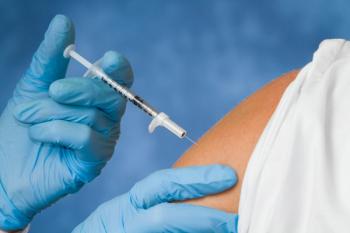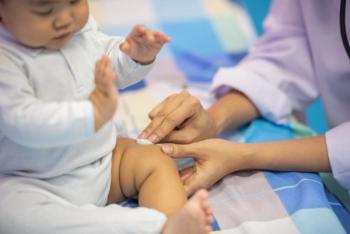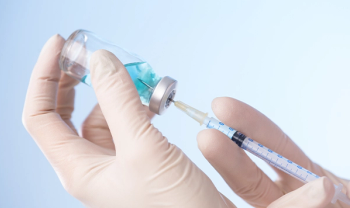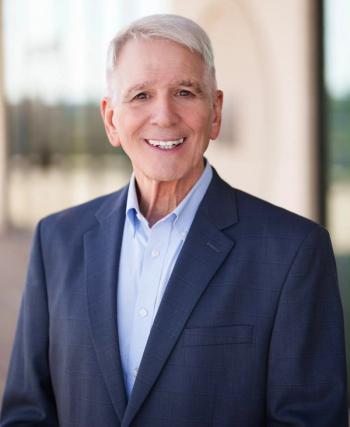
Survey Finds Parents Divided on Vaccine Safety and Influenced by Conflicting Messages
Parents express mixed feelings about COVID-19 vaccines, revealing a significant divide in trust and safety perceptions, according to a KFF survey analysis.
While most parents trust long-time childhood vaccines such as measles, mumps, rubella (MMR) and polio, many remain uncertain about the safety of newer vaccines, particularly those for COVID-19 and seasonal flu, according to a new survey by KFF.
The
To get a better idea of where parents’ feelings on vaccines are, the survey was conducted between July 18 and August 4, 2025 and included 2,716 U.S. parents of children under 18 with an oversample of 1,092 parents of children under six to better reflect those currently making vaccine decisions.
The survey was conducted online in English and Spanish through the Ipsos KnowledgePanel, a probability-based panel recruited using randomized address-based sampling. Responses were weighted to reflect national demographics including political affiliation, education and race/ethnicity.
The results revealed both broad agreement and deep division. For example, nearly nine in ten parents said MMR and polio vaccines are safe and important for children in their community to receive and 81% support school requirements for these vaccines. However, just 43% said the same about COVID-19 vaccines and 56% about flu vaccines.
Differences were stood out by politics and age.
In fact, while 70% of Democratic parents expressed confidence in the COVID vaccine’s safety for children, only 22% of Republicans agreed. Younger parents also expressed more concern, with 39% saying vaccines are not tested enough before approval compared with 26% of parents 50 and older.
When asked about their own choices, one in six parents said they have skipped or delayed at least one recommended childhood vaccine—excluding flu and COVID-19. Republican parents (22%), parents under 35 (19%) and homeschooling parents (46%) were the most likely to report this. Safety concerns and fear of side effects were the top reasons.
Parents also showed uncertainty about specific claims.
Although only 9% believe that in the connection between the MMR vaccine and autism, nearly half (48%) said they “don’t know enough to say.” Parents of children with autism spectrum disorder were more likely to believe the claim (16%).
Trust in government institutions appeared especially weak. It was found that just 14% of parents said they have “a lot” of confidence in the CDC or FDA to ensure vaccine safety and about a quarter (26%) believe the CDC recommends too many vaccines for children.
Vaccine experts say mixed messages from federal and pediatric groups may be fueling uncertainty among parents
“When one federal body narrows access or shifts to ‘talk to your doctor’ while pediatric leaders still recommend for some ages, families may infer that ‘the experts don’t agree,’ which risks spillover doubt about routine immunizations that keep measles, whooping cough and other school-spread infections in check,” he said.
Parents’ written comments further paint the picture of the personal beliefs and experiences that shape their vaccine decisions.
A Republican parent of a teenage boy and girl from Wisconsin felt that “risks outweigh the benefits. This is a disease caused by a virus you get due to unwise behavior.”
Another parent, an independent from Pennsylvania with a pre-teen daughter expressed that children “should not be engaging in sexual activity until marriage and they explicitly understand the risks without the vaccine and of course, the sinful nature.”
Others expressed more concerns about safety.
A Republican parent of a teenage girl from Louisiana shared that she knows someone with a vaccine injury caused by a newer vaccine. Because it is a newer vaccine, they are “unsure of effectiveness and risk of long-term complications.”
Based on the overall views, the study’s design highlights the findings due to its large national sample, oversampling of parents with young children and bilingual administration. At the same time, the survey has limitations, relying on self-reported behaviors and capturing opinions at a single moment during a period of intense political debate.
For researchers, the most prominent finding is not complete vaccine rejection but persistent uncertainty.
The authors suggest that further exploration is needed to understand why so many parents remain unsure about vaccine safety despite decades of evidence. They pointed to the need for clear consistent communication from trusted health sources, given parents’ low confidence in federal agencies.
Newsletter
Get the latest industry news, event updates, and more from Managed healthcare Executive.























